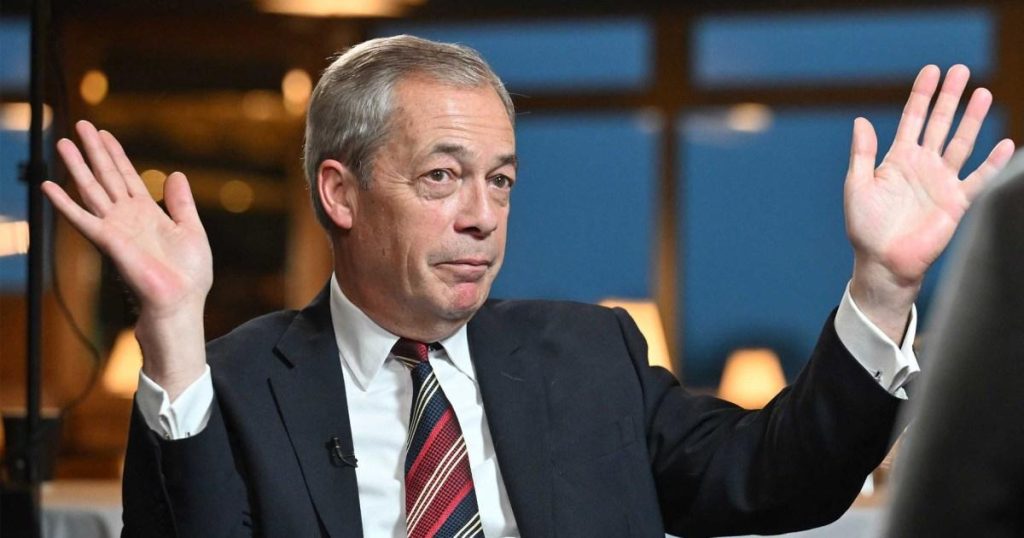Nigel Farage, the leader of the Reform UK party, has garnered significant attention for his lucrative role as a brand ambassador for Direct Bullion, a London-based gold bullion dealer. His earnings from this venture, totaling nearly £190,000, have raised eyebrows given the relatively small time commitment of just four hours per month. Farage’s promotional efforts for the company, including advertisements and educational videos, advocate for investing in gold as a long-term strategy, even suggesting its inclusion in pension portfolios. This financial disclosure comes alongside other notable entries in the register of MPs’ financial interests, offering a glimpse into the diverse income streams of political figures.
The revelation of Farage’s substantial earnings from Direct Bullion has sparked discussion, particularly given his political stance and the socio-economic conditions within his constituency. Representing Clacton, an area encompassing Jaywick, one of the most deprived villages in England, Farage’s advocacy for gold investment contrasts sharply with the financial struggles faced by many of his constituents. The optics of a political leader profiting handsomely from promoting a luxury commodity while representing a community grappling with poverty have drawn criticism and fueled debate about the appropriateness of such activities.
The register of MPs’ financial interests provides a window into the various sources of income for parliamentarians, often revealing intriguing details about their engagements outside of their official duties. Suella Braverman, the former home secretary, declared gifts of three portraits worth over £1,300. Green Party co-leader Carla Denyer disclosed her winnings from appearing on Christmas University Challenge, which she subsequently donated to charity. Former Labour leader Jeremy Corbyn registered over £35,000 in donations for legal fees related to two separate cases. These diverse entries highlight the range of financial activities and interests pursued by political figures.
Beyond his involvement with Direct Bullion, Nigel Farage’s financial disclosures reveal further income streams, including a substantial sum earned as a presenter on GB News, totaling nearly £220,000 since the election. He has also generated over £15,000 from personalized video recordings on the Cameo platform. These multiple sources of income paint a picture of a multifaceted career encompassing media appearances, political leadership, and brand ambassadorship. The cumulative figures raise questions about the potential influence of external financial interests on political decision-making.
In a separate entry, Labour leader Sir Keir Starmer declared two tickets to the director’s box at the Emirates Stadium, valued at £1,000, to watch an Arsenal football match. This disclosure follows previous scrutiny of Prime Minister Rishi Sunak’s acceptance of freebies, including event tickets, justified on security grounds. The recurring theme of politicians receiving complimentary access to exclusive events sparks debate about the transparency and ethical implications of such practices. While security concerns may be valid, the optics of accepting valuable gifts raise questions about potential conflicts of interest and the perception of preferential treatment.
The public disclosure of MPs’ financial interests serves as an important mechanism for transparency and accountability. By providing insight into the various sources of income and potential conflicts of interest, these disclosures enable scrutiny of political figures’ activities beyond their official duties. The revelations regarding Nigel Farage’s substantial earnings from Direct Bullion, alongside other notable entries in the register, underscore the importance of transparency in public life. These disclosures allow the public to assess whether external financial interests might influence political decision-making and to hold elected officials accountable for their actions.


